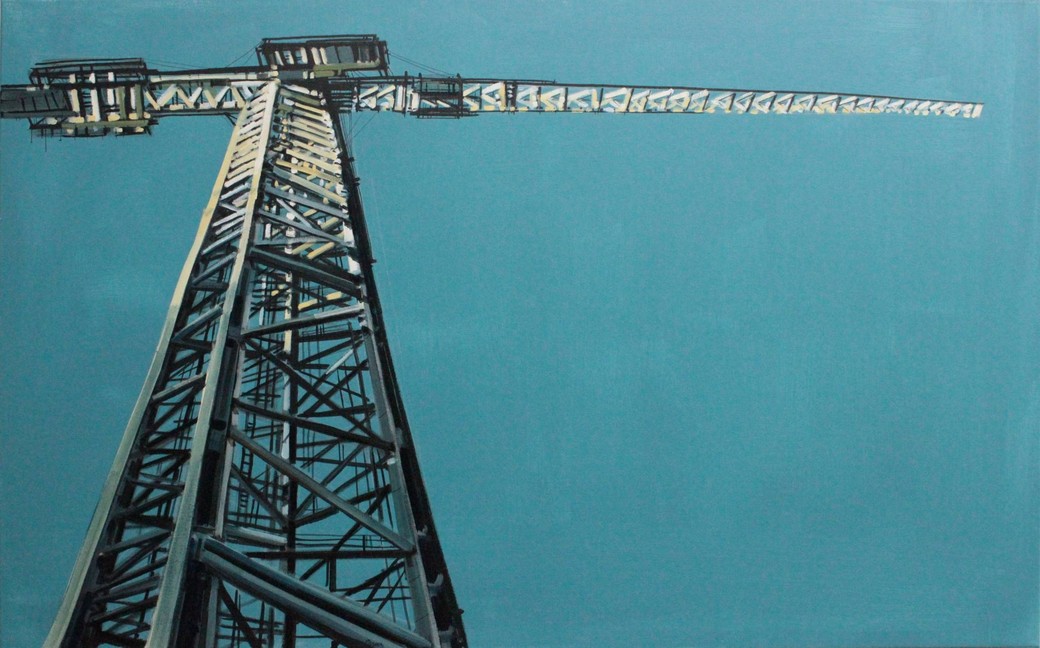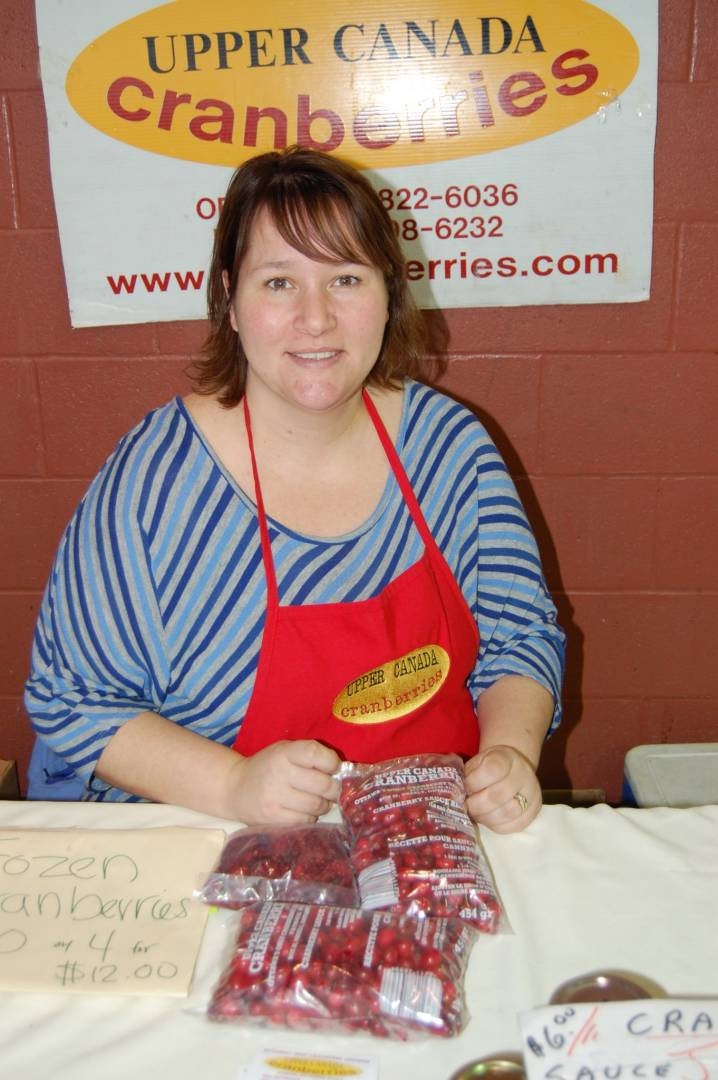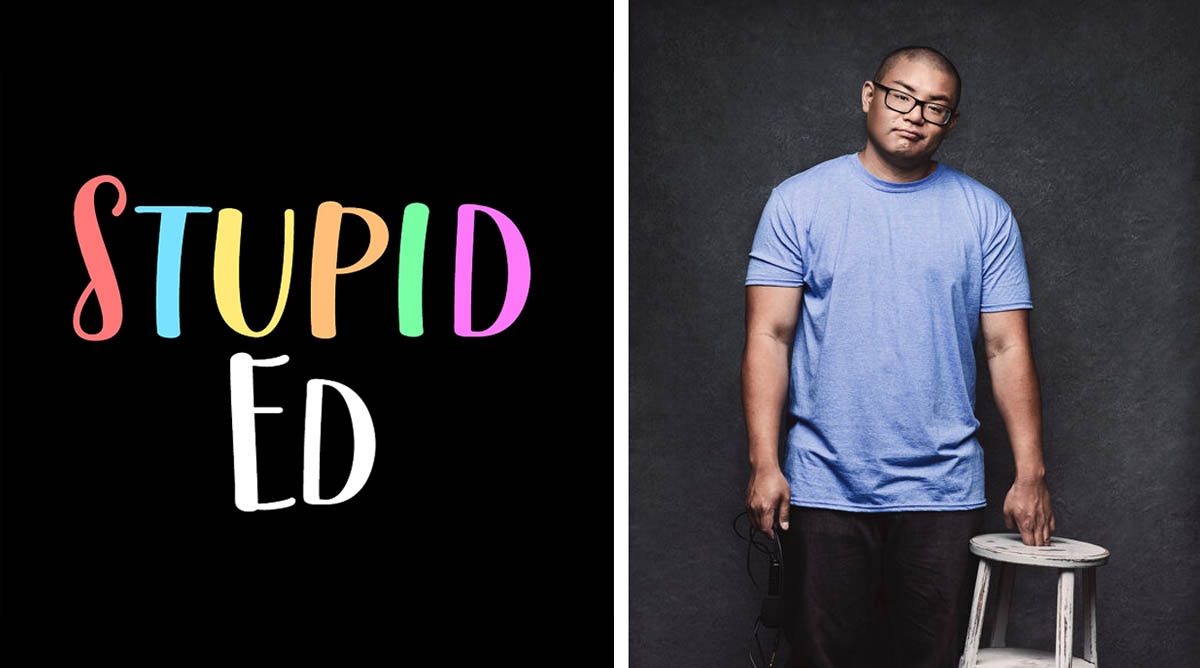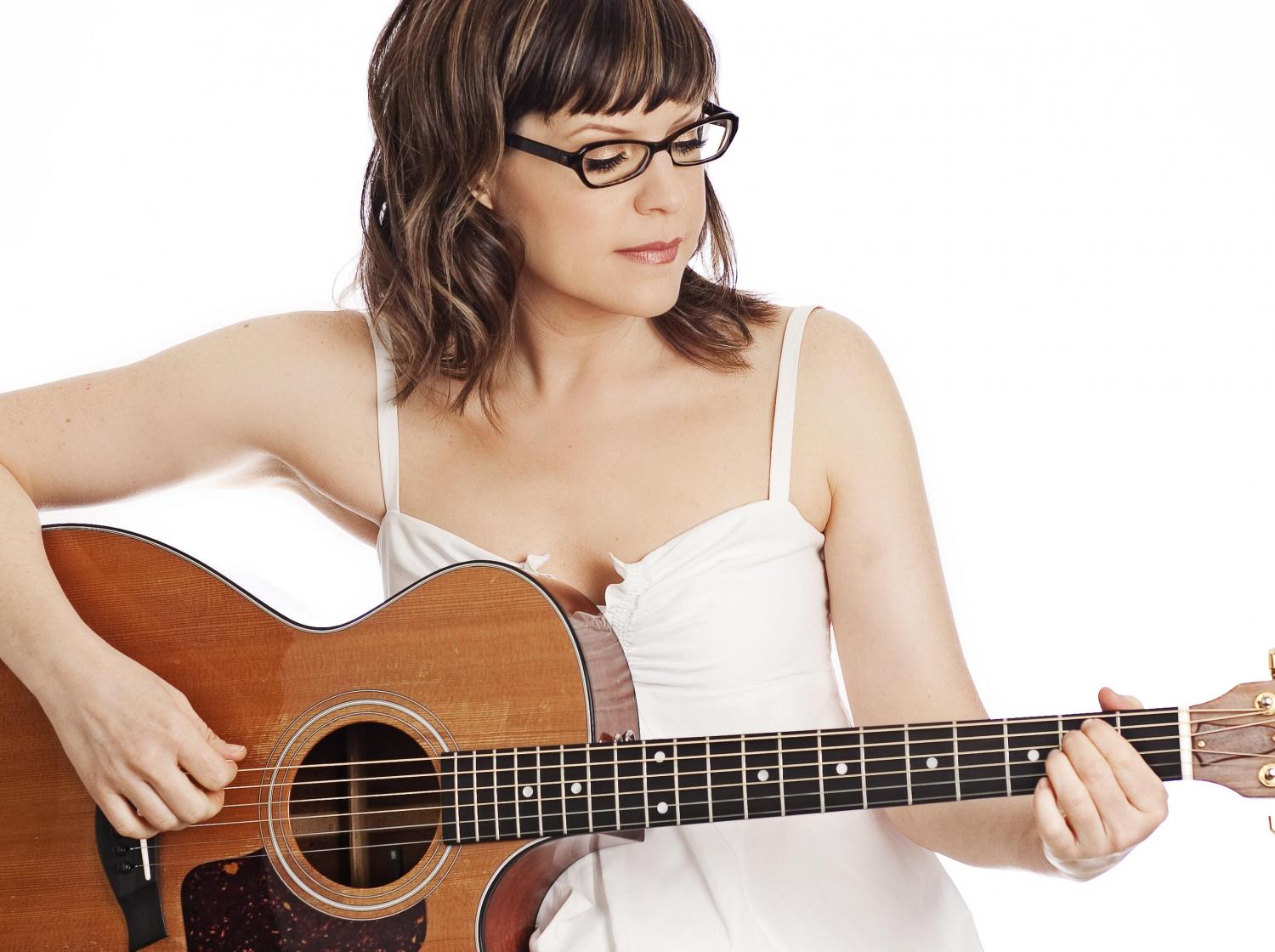
Lisa Loeb Finds New Ways to “Stay”
“You say, I only hear what I want to,” sang indie sensation Lisa Loeb back in 1994. That summer, the biting reality was that it was hard to hear anything else! Her hit single, the first to hit number-one for an artist without a recording contract, “Stay (I missed You)” was everywhere from the video’s rotation on MuchMusic, the cassette single passed around the schoolyard to the seemingly endless plays on every local radio station.
The song was that infectious. It was that good. For many of us who grew up that summer of Bronco chases, pogs, Lion Kings and Gumps –one that saw us still shaken walking dizzily into the sun those first few months without Cobain– it was a welcome escape, if anything, from “Tootsee Roll”, “Cotton Eyed Joe” and anything by Ace of Base! We didn’t mind that you could switch on the radio to hear the song starting only to flick the dial to find it beginning again on the next station, creating a back and forth repetition akin to children gathered around the campfire being lead in a chorus of “Row, Row, Row Your Boat”.
Life was but a dream for Loeb that year and, considering a lot of that dream started at summer camp for her, she’d probably be okay with her song being sung under the stars by sleepy-eyed kids with S’mores sticky fingers covered in graham cracker crumbs and Deep Woods Off.
 “Summer camp was a wonderful place away from home where I felt safe. Being with new friends, old friends, the outdoors, and a guitar really was a perfect setting for learning to be a person,” Loeb tells Ottawa Life, reflecting on the importance of that camp experience.
“Summer camp was a wonderful place away from home where I felt safe. Being with new friends, old friends, the outdoors, and a guitar really was a perfect setting for learning to be a person,” Loeb tells Ottawa Life, reflecting on the importance of that camp experience.
There, she’d take part in skit nights where she’d often make up plays and sing songs while strumming her guitar for the rest of the camp. She’d later return to those days by way of an album called Camp Lisa, a time machine in music of some of the traditional songs she sang in her pre-teen years as well as some new tunes perfect for a campout sing-along. She also formed the The Camp Lisa Foundation as a way to raise funds to help send kids, who usually do not have the opportunities or means, to camps.
The album was the beginning of Loeb’s parallel journeys with her music. Though she had worked with college music partner Elizabeth Mitchell on a CD and book called Catch the Moon before, Camp Lisa saw the musician’s solo career in contemporary folk / rock mix like colourful tubes of finger-paints on new canvass of work for children.
“I have a lot of nostalgia for the entertainment of my childhood, which wasn’t always for kids,” says Loeb, adding how it was the cleverness and often silly feel of the songs in shows like Sesame Street or the Electric Company that inspired her later in life to write similar music for kids.
In between working on cooking and reality shows, launching her own eyewear and her memorable cameo in Hot Tub Time Machine 2 hilariously touching upon her “Stay (I Missed You)” fame, Loeb released two more children’s albums, two books and wrote a musical creating an entire side following of family fans, parents and children, who quickly latched on to the wit and charm of the musician some of them first heard back in that summer of 1994.
Loeb, on the heels of her new all-ages release Feel What U Feel, will showcase both musical paths this weekend at Centrepointe Theatre with a family matinee show Sing Along with Lisa Loeb at 2PM and another concert later in the evening featuring music from her folk-rock repertoire.
To experience the full musical duality of Lisa Loeb we suggest you “Stay” for both.

We had a chance to talk with Loeb before her weekend shows on her two career paths, motherhood and how she feels about her most popular song twenty-three years later.
Ottawa Life: I’ve read some musicians as having said having a major hit early on can sometimes be more damaging to a career than good. “Stay (I Missed You)” became huge, a staple of the mid-90s generation. Do you feel the single became more of a weight on you as you moved forward after its success or was it just the opposite?
Lisa Loeb: I feel that the success of the song “Stay” has been a gift to me. There’s a range of fans, from those who know my entire catalogue to those who only know that song, and everything in between. I still make music and play concerts, and that song often draws people to me. It’s pretty amazing to have a handful of songs that connect with people in a such a deep way: it’s something people feel emotionally, nostalgically, and also in the present. There is so much music out there, that between my glasses and the song “Stay,” it feels like there will always be a lot of people who find me.
Out of all the songs you had been performing, why do you feel this one took off and, say, not one of my personal favourites “Do You Sleep?” or “It’s Over” (ah, my angst filled bellow at the top of my lungs to this end of relationship tune!)?
“Do You Sleep” still feels very popular. I’m not sure which songs get popular and why- it’s a mystery that everyone is always trying to figure out. I think a lot of things came together for “Stay.” The song was very engaging and unique in style, structure, and sonic production. It was very intimate sounding, centered around a vocal and an acoustic guitar. The song sounded different from what was on the radio, the story about Ethan Hawke getting my song to Ben Stiller is also a cool story. Having a number one single “out of nowhere” without a record label (even though I’d been at it for years) was a story that people took note of. The fact that Ethan Hawke "a famous actor” directed the video is also a notable fact that people were drawn to and the video he made really made an impact as well: it was all done in one take, which looked really different from all of the sparkly, highly produced, super edited videos that were out at the time. All of these things helped.
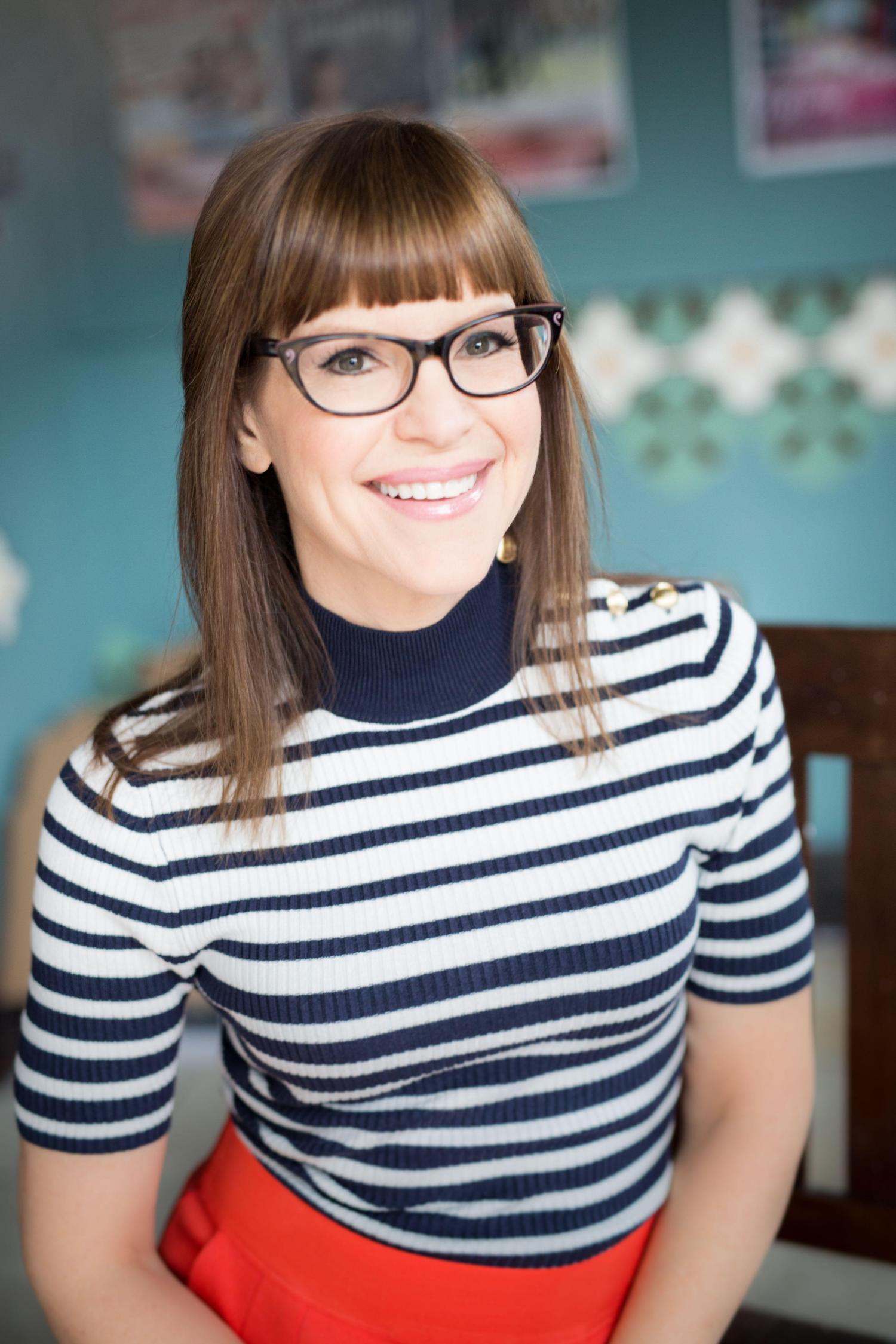 You just touched upon this, how you became the first independent artists to hit number one with that song. Did you ever really consider yourself the epitome of the “indie” scene and how do you view your music/self now in that context?
You just touched upon this, how you became the first independent artists to hit number one with that song. Did you ever really consider yourself the epitome of the “indie” scene and how do you view your music/self now in that context?
I really am indie. Although my music might not be really super alternative or avant garde, the approach I’ve always taken is “indie.” I’ve always been a self-starter and made records when I didn’t have a record label. I started off making music, recording, selling cassettes at shows, calling radio stations, setting up interviews, and pounding the pavement. I still have a “do it yourself” attitude and work process. And I like to think for myself and with my collaborators. I always have some new idea about what I want to do.
I know I run the risk of being just another reporter talking about your iconic glasses but, as a fan as well, they were really the best way to describe who you were appearance-wise as they become a part of your persona. I read once how you would get annoyed when your eyewear seemed to be discussed more than your music. Why do you feel this became such a focus and was launching your own line of glasses a way to say, well, if you can’t beat 'em join 'em?
People really have always wanted to focus on my eyewear. I do the same with some of the musicians I listened to growing up, like Elton John and David Bowie. I loved their fashion. When I realized I still loved their music and was able to focus on both, I started to embrace people’s interest in my glasses. My interest and love of glasses is like a hobby as well as a necessity, and when I figured out that I could work with someone to design glasses to help other women, I really went for it. People stop me all the time to tell me that they love my glasses, or have glasses “just like mine,” or feel comfortable and pretty wearing their frames because they saw me with my glasses growing up. I’m proud if I have had that kind of impact for people to feel comfortable and pretty in their skin, or at least in their eyewear!
Now, you said that both Judaism and KISS were big influences on you. That’s a mighty big jump with a lot of possible branch off points in between. Can you elaborate on these types of influences?
Judaism has a practice of thinking through words and concepts and philosophies that really plays into the way I write songs. It’s also a very introspective practice that is helpful when I’m writing.
Kiss, on the other hand, is an awesomely dramatic and theatrical band with super catchy songs. My brothers and sister and I used to pretend we were the band and play in the living room along with the records when we were little. Playing music seemed like an awesome, magical thing to do!
We all have lots of influences that go into our beings, huh?
Speaking of influences, I read that your early inspiration to play guitar was through discovering The Police as well as experiences with friends while attending summer camp. How important were those days at camp to you growing up and how do you feel they helped shape who you are now?
I went to a regular sleepaway camp, not an arts, music, theater or sports camp, but I had daily opportunities to learn new songs, play guitar when I got older, make up new words to old songs, and be completely immersed in music. Playing guitar and singing was a way to be part of a community, a great way to use my brain and my voice, and also for entertaining alone or collaborating with others.
As a childcare worker myself, I often hear the groans and moans from the kids I work with about having to attend what they seem to consider more school come the summer months. What are some of your most vivid memories of your times at camp that you can impart upon kids going into things with a possible negative viewpoint?
Camp is a great place to learn about yourself and have new experiences in a safe setting away from your parents. Often counselors are young folks too, which makes it feel like you’re independent. All of this leads to getting more confident and learning to be part of the community and being a person, without being graded. I loved it. I felt strong and centered at the end of summer camp each year.
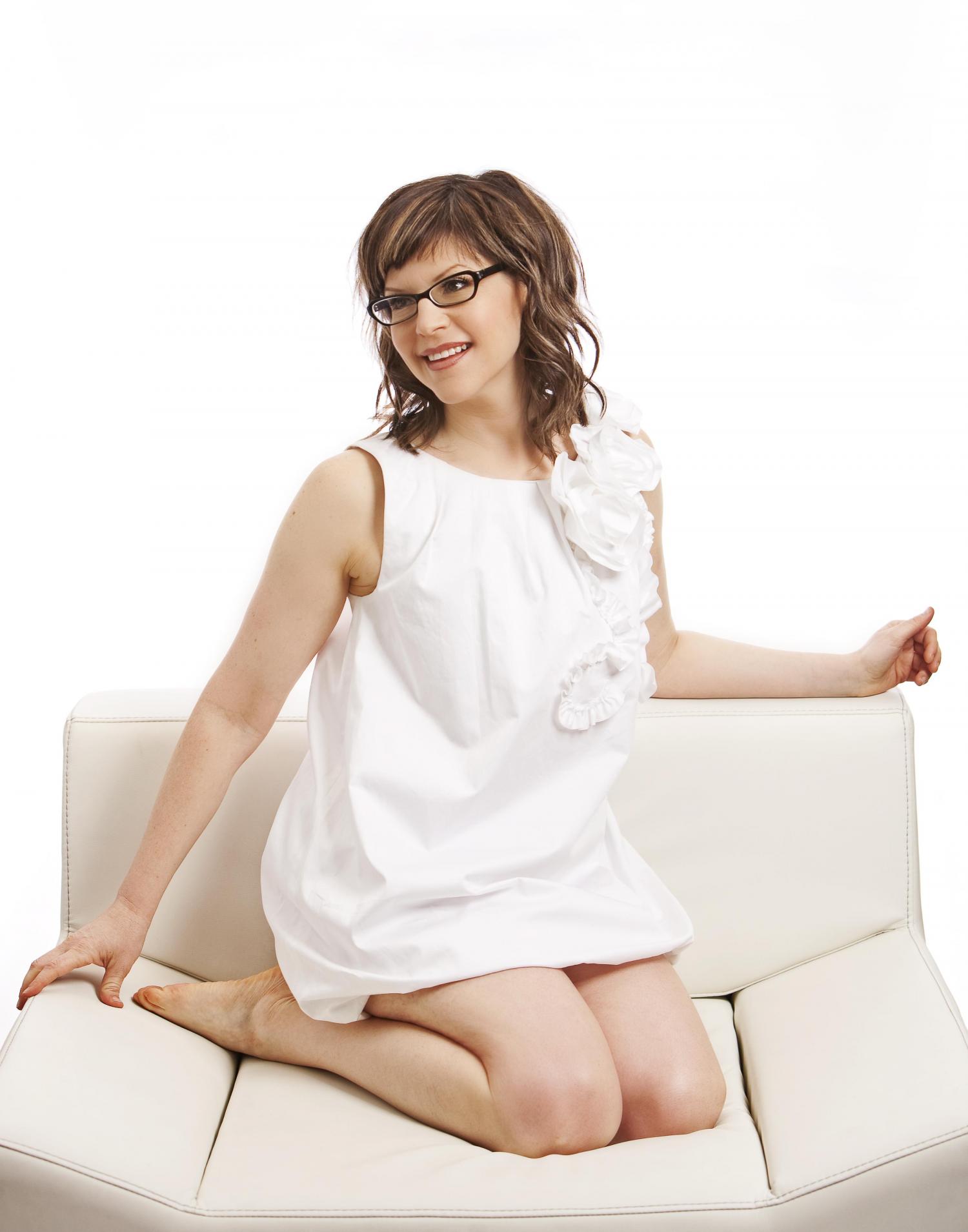 Obviously, you can tell these experiences were important to you. What went into the formation of the Camp Lisa Foundation?
Obviously, you can tell these experiences were important to you. What went into the formation of the Camp Lisa Foundation?
I wanted to share the summer camp experience and feeling through songs, silly songs, heartfelt songs, nostalgic songs, original songs that embodied the themes of summer camp, like making friends and waking up early in the morning. Then I realized that the best way to share summer camp is to actually send kids to summer camp. So, I started the Camp Lisa Foundation to send kids to summer camp who normally wouldn’t have an opportunity to go. We work with S.C.O.P.E. to send kids to camp!
You sort of really jumped into the reality TV craze for a while with Dweezil & Lisa and then Number 1 Single. Looking back now, did you enjoy that aspect of your career and what do you feel you learned working in reality TV?
Dweezil & Lisa was a cooking show on the Food Network that had elements of our real life, but was meant to be educating while entertaining. Number 1 Single was definitely a reality show. In both cases I felt that my point of view was something that others would enjoy and like taking part in. Lots of people have a love for food and travel and music and learning from everyone from a professional chef to a friend’s mom about making food. I think all of those things came across well with the Food Network show.
On my reality show, I had hesitations about being a part of a reality show, but then realized that there are lots of other people, especially women, who could relate to being in my thirties, and trying to focus more on finding a husband and the future of my personal life instead of just focusing so much on my career. Finding that balance, talking to friends and family, living in NYC, and figuring out all of those things really resonated with lots of people. Women and men even today ask me how my life is going and love to tell me about the ups and downs in the stories of their lives. That’s what the show was about- sharing stories and connecting, which are, in fact, the main goals in my career whether it be music or eyewear or making tv shows.
You said once how you felt it was a typical part of life to share with people. Did you ever feel having these cameras on the “real” you was exposing too much or were there things you still pretty well kept to yourself during that period?
We were making a TV show, so of course, having cameras on made it hard to have a real life at times. That being said, we made sure that the cameras weren’t always on. It was a produced show. I was one of the producers.
There’s a form of spontaneity in your songs, I’ve found. Though I know it can’t necessarily be the case, when I hear some of your stuff, especially the early music, the songs seem like they just appeared out of the air. Do you have a typical process when it comes to your writing or is it as sporadic as the end result sometimes seems?
I wouldn’t say spontaneity, as I spend a great deal of time crafting every second of every song: every lyric, every note, the production- you name it. Maybe the honesty of the feelings and thoughts and images sounds spontaneous, or maybe the originality of the images? Sometimes people like to write about the same things all the time. I don’t. I like using images from all parts of the universe and my experience and my imagination. I always tell people that the most important thing to do when you’re writing is to write from your unique point of view, because that is what will make a common experience get expressed in your own personal way and make it truly unique.
I have a lot of different ways I write. I come up with ideas, sometimes someone asks me to write a particular song, sometimes I write around a concept that I come up with, or a collection of words that sings well, or a chord progression or inspiration from another song. The list goes on and on. Once the inspiration sets in, then the crafting begins and then it’s a race to the finish to get the song done.
 The 2000s saw a big shift in your music. Before becoming a mother yourself, you started working on projects for children. What had you deviating into that genre?
The 2000s saw a big shift in your music. Before becoming a mother yourself, you started working on projects for children. What had you deviating into that genre?
I loved “Fernwood Tonight,” “Free to Be You and Me,” watching the variety shows like The Carol Burnett show or Donny and Marie, comedians like Steve Martin, and more. There were children’s books that told deep stories, and grownup things that were so silly. Sesame Street, Electric Company, Really Rosie (an album made for kids by Carol King), as well as all the grownup music that was on the radio in the mid and late 70s. These weren’t just for grownups or kids. They had heart, stories, cleverness, sometimes silliness, sometimes a melancholy quality, sometimes just what’s going on with a very quotidian quality.
I wanted to make music and entertainment like that. It turned out to be kids’ music and now music for families.
What, if anything, changed for you after becoming a mother?
After becoming a mother, I felt I needed to record some more of the classic kids songs too, so I made Nursery Rhyme Parade! Kids love the hits. When I play concerts for kids or sing to my kids at night, they love some of my original songs, but there’s something to the traditional songs, sung in a simple way with pared down instrumentation and simple harmonies and percussive elements and handclaps really connects with kids. And it connects parents, caregivers, grandparents and teachers with kids too in a quieter way. It’s a wonderful way to slow down life for a minute, singing these songs, or listening to the recordings.
It’s funny reading after Feel What U Feel dropped some sites saying Lisa Loeb premieres an “all-ages track”. How have you found moving between the music for kids and your other work. Is it all just music to you or do you knowingly make a shift when writing and recording for the different genres?
I knowingly make a shift when I write songs on an album. I always feel like albums are mixed tapes. It’s important to change the mood and tone throughout the album, both in family/kids records and grownup records. I’m always confused when I feel I’ve already heard a song on a record. I love variety. Everyone loves the Beatles. They do it best. I used to listen to Sgt. Peppers constantly when I was in third grade. So, you could say I had great teachers.
Working with kids myself is a learning experience every day. They teach you so much and, really, give you this wonderful ability to remain young. What are of the things you feel you’ve learned from working with kids?
I’ve learned with kids that it’s important to stay focused and not get drawn away with technology. It’s important to take all ideas seriously because you never know how simple or complex of an idea or concept or melody or word will inspire a song.
Finally, one of my favourite quotes from you regards taking kids away from the computer. What are ways you can encourage parents to break their kids away from this era of seemingly media dependency?
I think it’s important to set timers and have limits on computers and generally to do everything possible other than being on a computer before you decide to sit down and watch something or play something or get sucked in. Take out a paper and pen, make up a game, sing a song, take a walk. Anything!!!

